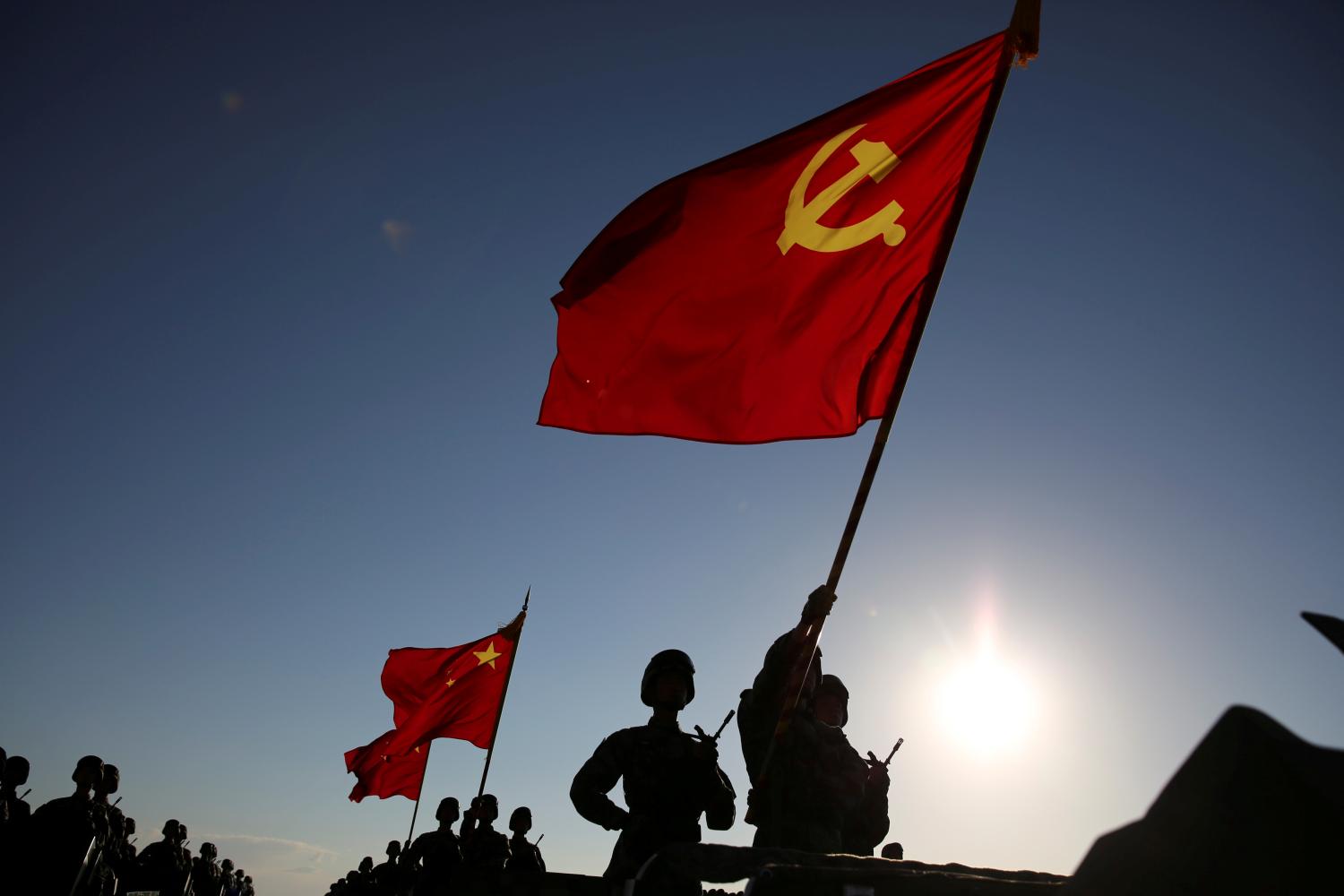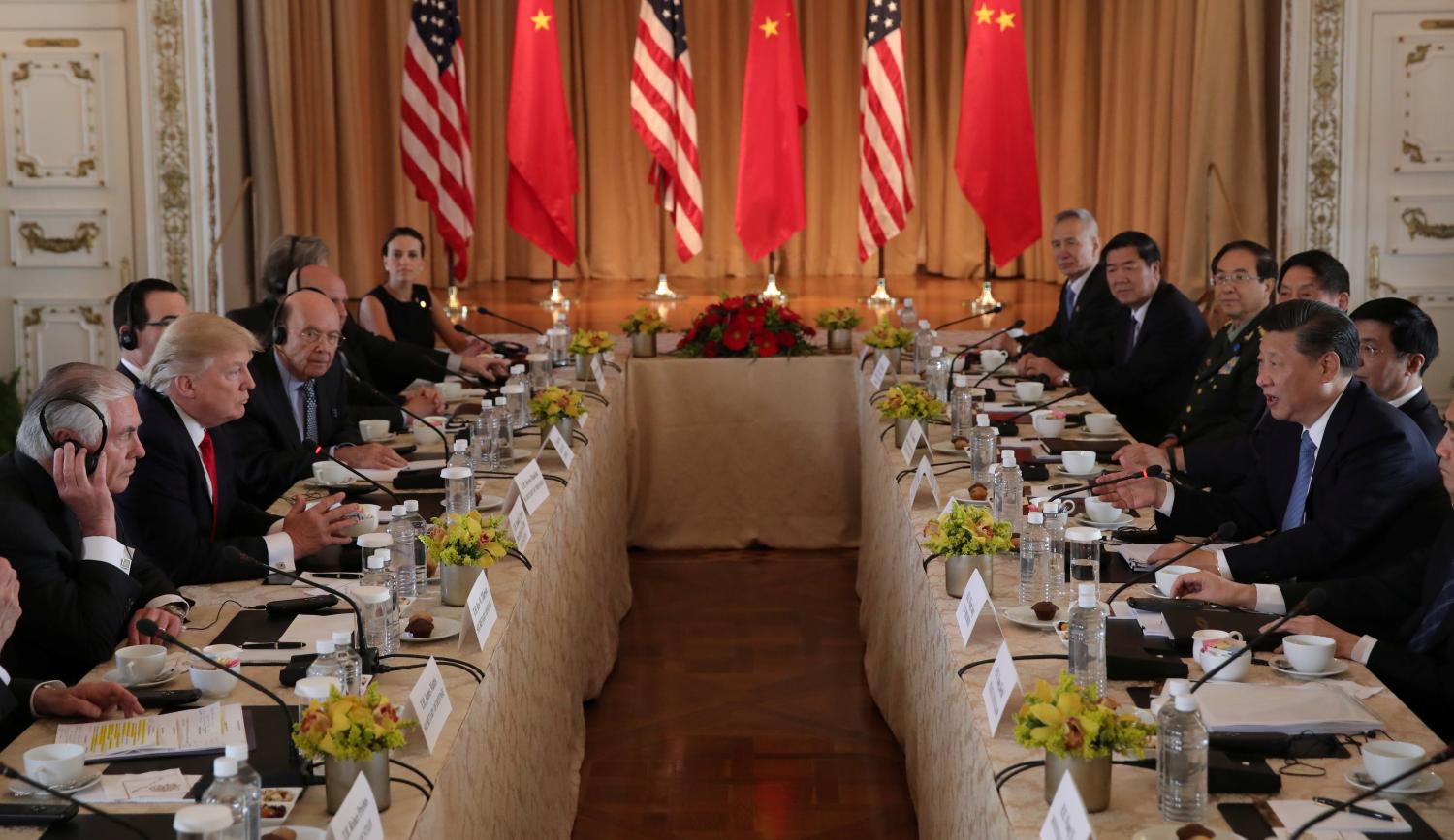The most pivotal question in geopolitical affairs is whether and how the United States will exercise its military power to impose costs on China for seeking to assert military dominance in East and Southeast Asia. But this central question is one among many regarding how the United States and China will navigate each other’s changing roles in international affairs, particularly as Chinese President Xi Jinping gives greater expression to China’s ambitions to be a premier global power. On November 1, 2017, Brookings Vice President and Director of Foreign Policy Bruce Jones convened seven Brookings scholars and affiliates—David Dollar, Ryan Hass, Robert Kagan, Cheng Li, Kenneth Lieberthal, Mira Rapp-Hooper, and Jonathan Stromseth—to discuss the future of U.S.-China relations. The edited transcript below reflects their assessments of China’s current and future posture, and the American debate about how to respond.
DIRECTOR’S SUMMARY
- After two decades of transformative growth, China’s economy appears largely stable; but its economic model is unlikely to sustain continued, fast-paced growth. Technocrats in China understand the transitional steps that China needs to take to make its economic model more sustainable. However, while Xi Jinping has consolidated power, he still faces considerable political constraints and has not yet demonstrated a willingness to override entrenched interests resisting such reforms.
- Still, China has reached a point of economic and political confidence where it no longer looks to the West for advice, and is gaining confidence in charting its own path in both domestic and international affairs. And it is increasingly assertive in its relationships with its neighbors in Asia.
- China is hardly the first rising power to seek primacy in a contested neighborhood. The experiences of late 19th century Germany and Japan may offer insights into the questions, decisions, and domestic political challenges China’s leadership will face as they continue their rise.
- Ongoing U.S. debate over the future of U.S.-China relations turns on the question of whether, how, and at what cost the United States should seek to prevent China from establishing regional military hegemony in the Asia-Pacific. All sides in this debate seek to avoid direct conflict between the United States and China, but disagree as to how to achieve this goal, and what the threshold for military confrontation should be. Nevertheless, across various schools of thought there is growing support for a more assertive U.S. response to Chinese actions that disadvantage the United States economically or challenge the credibility of U.S. security commitments to allies and partners.
- There is often a false dichotomy between competition versus cooperation in U.S.-China relations. In fact, there are—and should be—elements of both competition and cooperation in both the economic and security spheres.
- The greatest risk of conflict between the United States and China stems from the tension between America’s naval presence in Asia coupled with U.S. alliance commitments, and China’s effort to push the United States out of the East and South China Seas. However, the most acute crisis in the region is North Korea, where Chinese and American interests, while not aligned, at least overlap, leaving some prospect for growing cooperation.
- To better defend U.S. interests and values while also averting the risk of unintended conflict, U.S. policymakers should articulate a more specific set of ideas about what the United States seeks from its relationship with China, and what specific outcomes the United States cannot accept. They also need to invest more effort in building broad public support for a coherent China strategy. Absent such a U.S. domestic consensus, Beijing will question the credibility and sustainability of U.S. policy toward China and its broader commitments across Asia.
The Brookings Institution is committed to quality, independence, and impact.
We are supported by a diverse array of funders. In line with our values and policies, each Brookings publication represents the sole views of its author(s).















